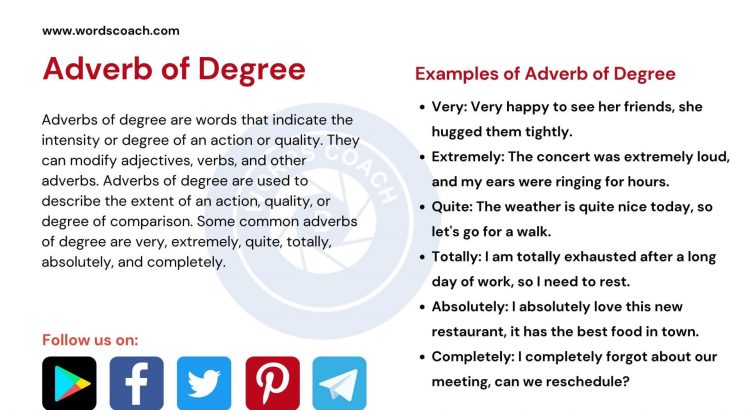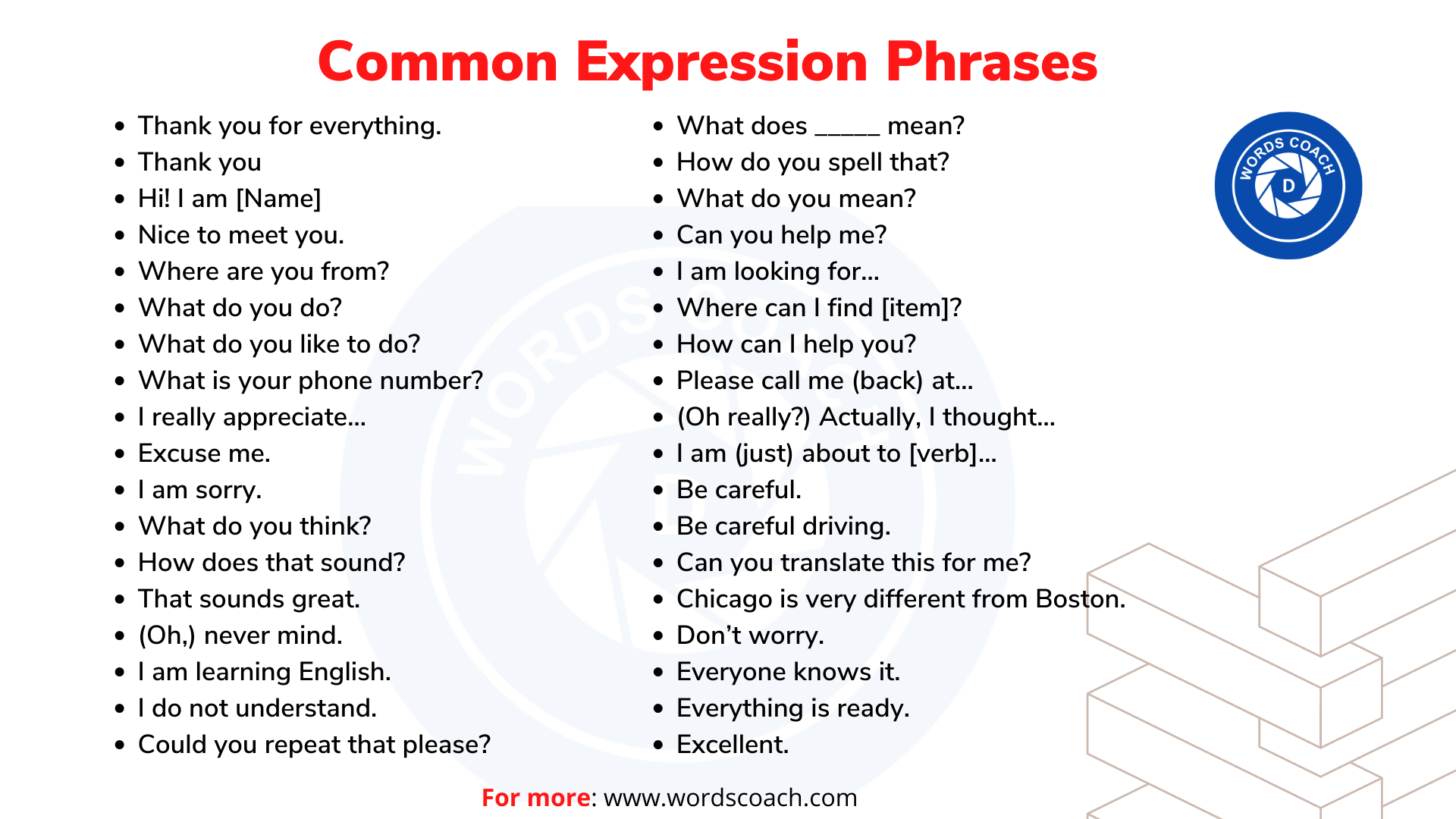Adverb of Degree
Adverbs of degree are an important part of the English language. They are used to modify adjectives, verbs, and other adverbs by indicating the intensity or degree of an action or quality. Adverbs of degree are used to answer the question “how much” or “to what extent”. In this blog, we will explore what adverbs of degree are, how they are used in English, and some common examples.
Adverbs of degree are words that indicate the intensity or degree of an action or quality. They can modify adjectives, verbs, and other adverbs. Adverbs of degree are used to describe the extent of an action, quality, or degree of comparison. Some common adverbs of degree are very, extremely, quite, totally, absolutely, and completely.
Let us explore each of these adverbs of degree in more detail.
- Very:
Very is used to indicate a high degree of intensity or quality.
For example, “She was very happy to see her friends.” - Extremely:
Extremely is used to indicate an even higher degree of intensity or quality than “very”.
For example, “The concert was extremely loud.” - Quite:
Quite is used to indicate a moderate degree of intensity or quality.
For example, “The weather is quite nice today.” - Totally:
Totally is used to indicate complete or absolute intensity or quality.
For example, “I am totally exhausted after a long day of work.” - Absolutely:
Absolutely is used to indicate complete or total agreement or emphasis.
For example, “I absolutely love this new restaurant.” - Completely:
Completely is used to indicate that something is done to the fullest extent or degree.
For example, “I completely forgot about our meeting.”
Adverbs of degree can also be used in a sentence in different positions. They can be used at the beginning, in the middle, or at the end of a sentence.
For example:
- Very: Very happy to see her friends, she hugged them tightly.
- Extremely: The concert was extremely loud, and my ears were ringing for hours.
- Quite: The weather is quite nice today, so let’s go for a walk.
- Totally: I am totally exhausted after a long day of work, so I need to rest.
- Absolutely: I absolutely love this new restaurant, it has the best food in town.
- Completely: I completely forgot about our meeting, can we reschedule?
Adverbs of degree are important in the English language because they help us describe the intensity or degree of an action or quality. By using adverbs of degree, we can communicate more accurately and effectively.
Download Words Coach: English Grammar





